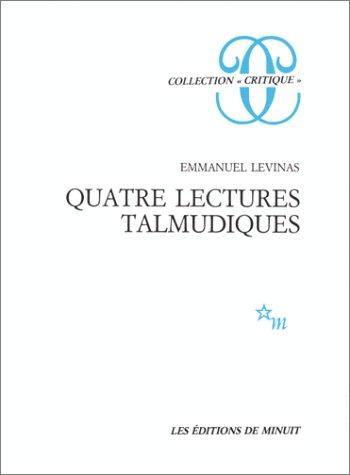Toddo finished reading Quatre lectures talmudiques by Emmanuel Levinas
I’ve been reading this bit by bit with my Chavruta over the past 7 months or so, me in French and him in English translation. We’ve bounced back and forth between the translation and the original, and I’ve worked to make ties to Levinas’s secular ethical philosophy. I was caught off guard by the end of this book, where Levinas makes a strong case for why Jews specifically, in the shadow of the Shoah, should continue to take upon themselves the burdens of others, as is demanded by Jewish ethics. Levinas reads Talmud in an innovative way, yet rooted in traditional jewish study techniques. My scholar-self is fascinated by his philosophy of reading and interpretation, and how those acts relate to Jewishness. Here, he’s addressing a specifically jewish concern of the meaning of an ancient text, the Talmud, for modern, rational Jews integrated into pluralist democracies, but in the long shadow over western culture left by the Shoah. But the philosophies are flexible enough to generalizable to other texts and circumstances.
In the last section, a deep reading of Sanhedrin 36b-37a, Levinas performs his usual comparative critical technique to bring us squarely to the Jewish version of his secular ethical philosophy, the obligation that we owe to the Other:
«Je pense surtout que perfection et salut personnels sont, malgré leur noblesse, encore de l’égoïsme et que la pureté de l’homme que la bordure de roses protège du mal [a reference to the Talmud passage] n’est pas fin en soi. … Ceux-là [qui ne sont pas hitleriens] peuvent trouver le chemin du retour si quelqu’un prend sur lui leur misère et leur faute. Nous ne sommes pas au monde libres devant les autres et simplement leurs témoins. Nous sommes leur otages. Notion par laquelle, par-delà la liberté, le moi se définit. … L’homme [sic] otage de tous les autres est nécessaire aux hommes, car sans lui la morale ne commencerait nulle part. Le peu de générosité qui se produit dans le monde n’en exige pas moins. Le judaïsme l’a enseigné.»

